Fighting Coast Guard
Cast & Crew
Joseph Kane
Brian Donlevy
Forrest Tucker
Ella Raines
John Russell
Richard Jaeckel
Film Details
Technical Specs

Synopsis
In November 1941, Coast Guard officers have been assigned to supervise key shipyards which have rushed ships into production for the Navy. Bill Rourk, a shipyard foreman, is constantly butting heads with one of his workers, Barney Walker, an ex-All American football player who has not equalled his college success in the work world. After Bill saves Walker's life from a shipboard fire and reprimands him for disregarding safety protocols, Walker accuses Bill of being jealous and uneducated. Also on Bill's mind is Louise Ryan, a daughter of an admiral and the supervisor of the women welders. Louise is dating the Coast Guard's liaison officer to the shipyard, Comm. Ian McFarland, and is ambivalent about Bill's advances, but Bill finally persuades her to go out with him. However, his churlish behavior and resentful manner toward McFarland cause her to leave early. After the Japanese attack Pearl Harbor, a special officer training program aimed at men who are already experienced and ship-savvy is initiated. Many of the shipyard workers, including Walker, apply, but Bill is not interested. Although McFarland, who will head the program, believes Bill's natural leadership abilities and previous Navy experience make him an excellent candidate, Bill signs up only to avoid being drafted into the infantry, as Walker told him that McFarland has had his deferred classification changed. During the training period, Bill sneaks past Academy guards and Louise's apartment superintendent, and arrives on her doorstep unannounced and wanting to talk. They go out, but the military police catch him and haul him back to the Academy. Later, near graduation time, Bill has a boating accident, which, Walker claims, was a deliberate attempt by Bill to get thrown out of the Academy and returned to his higher-paying shipyard job. The lie costs Bill his commission, although, unknown to him, McFarland tries to appeal the case. After concluding that someone is sabotaging Bill, McFarland has him assigned as boatswain's mate on his ship. Jealous of McFarland, who is still dating Louise, Bill secretly believes that the commander is the source of his problems until Tony Jessup, a former shipyard employee and classmate in the training program, tells him about Walker. While at sea, Walker, who is now serving under McFarland, is fatally wounded in a strafing attack, but before dying, confesses to McFarland the problems he caused Bill. Later, on his last day of shore leave in San Francisco, Bill spots Louise at a U.S.O. function and again makes a case for their romance. Although she has a dinner date with McFarland and her father, she promises to meet him at the Top of the Mark restaurant at ten o'clock. When she arrives late, after delays beyond her control, Bill has concluded that she has spurned him and has already returned to his ship without seeing her. McFarland and Bill are then sent to Eniwetok U.S. Naval Air Force task base, and from there are involved in the takeover of several Pacific islands that are to be used as air bases for Japanese offensives. While transferring Marines from ship to shore, Tony gets stuck alone on a barge, which is under air attack. Because of poor weather conditions, McFarland cannot risk personnel and vehicles to rescue him. Hearing that Tony might still be alive, Bill disobeys orders and heroically rescues the young man, who then dies on the return trip. The Coast Guard continues to assist in the takeover of several more islands, including Iwo Jima and Okinawa, and afterward, Bill is called stateside. After consideration of a report from McFarland, which commends Bill's bravery and includes Walker's confession, Bill's record is cleared and he is promoted to officer status. At the Academy, where Bill has been assigned to train reserves and replacements, McFarland tells him that Louise did try to meet him that night in San Francisco and that she loves him. Bill realizes that McFarland has been on his side all along, and when he and Louise find each other on the Academy parade grounds during a graduation ceremony, they both admit their admiration for the commander. Louise then says she would have married McFarland, if it had not been for Bill.

Director
Joseph Kane
Cast

Brian Donlevy

Forrest Tucker

Ella Raines
John Russell
Richard Jaeckel
William Murphy
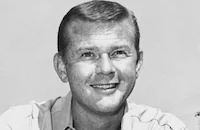
Martin Milner

Steve Brodie
Hugh O'brian

Tom Powers
Jack Pennick
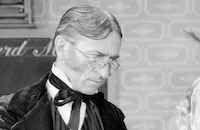
Olin Howlin
Damian O'flynn
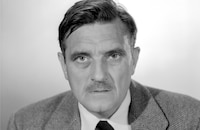
Morris Ankrum

James Flavin

Roy Roberts
Sandra Spence
Eric Pedersen
Sons Of The Pioneers
Kay Christopher
Shirley Mills
Robert Karnes
Gil Herman
John Marshall
Charles Evans
Milton Kibbee
Ralph Sanford
Peggy Webber
Anne Kimbell
Barbara Brier
Larry Carr
Jim Lennon
Bruce Morgan
Charles Victor
James Hickman
William Forrest
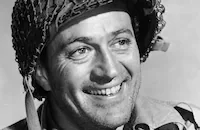
Don Haggerty
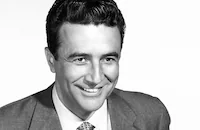
Rick Vallin
John Close
Bob Stevenson
Larry Carper
Bobby Scott
Bobby Coleman
Johnny Dugan
Mel Archer
John Halloran
Ross Ford
Charles Flynn
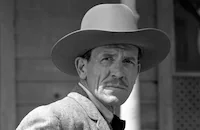
Kenneth Macdonald
Stan Holbrook
William Cabanne
John Baer
Clark Howat
Jimmy Lloyd
Murray Alper
Roy Engle
Phyllis Kennedy
Duke York
Jack Larson
Tex Terry
Emil Sitka
Patricia Ann Joiner
Vivian Mason
Crew
Frank Arrigo
David Buttolph
Lt. Commander R. C. Cannom U.s.c.g.r.
Kenneth Gamet
Peggy Gray
Captain S. R. Gray U.s.c.g.
Dr. Brewster M. Higley
Joseph Kane
Daniel E. Kelly
Reggie Lanning
Lee Lukather
Howard Lydecker
Theodore Lydecker
Bob Mark
John Mccarthy Jr.
Adele Palmer
Arthur Roberts
Otto Siegel
Tim Spencer
Dick Tyler
Capt. Francis Saltus Van Boskerck U.s.c.g.
Charles Marquis Warren
Howard Wilson
Herbert J. Yates

Film Details
Technical Specs

Quotes
Trivia
Notes
The working title of the film was Fighting U.S. Coast Guards. A written dedication to the men and women of the Coast Guard and an acknowledgment of the assistance of the Department of Defense appears after the credits. The following written prologue appears after the dedication: "The Coast Guard, operating under the Treasury in peace and under the Navy in war, had already been transferred to the Navy and had assigned liaison officers to certain shipyard activities in which the Navy had a vital interest." The following written epilogue appears at the end of the film: "Today, as in 1941, the Coast Guard stands united with Armed Forces on land, on sea and in the air, always ready to serve humanity in peace or in war."
According to December 1950 and January 1951 Hollywood Reporter news items, portions of the film were shot at Navy and Coast Guard installations at San Diego and Oceanside, and at Paradise Cove in Malibu. During production, scenes from the film, performed by Brian Donlevy, Forrest Tucker and Ella Raines, were broadcast on the ABC television network, according to a December 1950 Hollywood Reporter news item.












